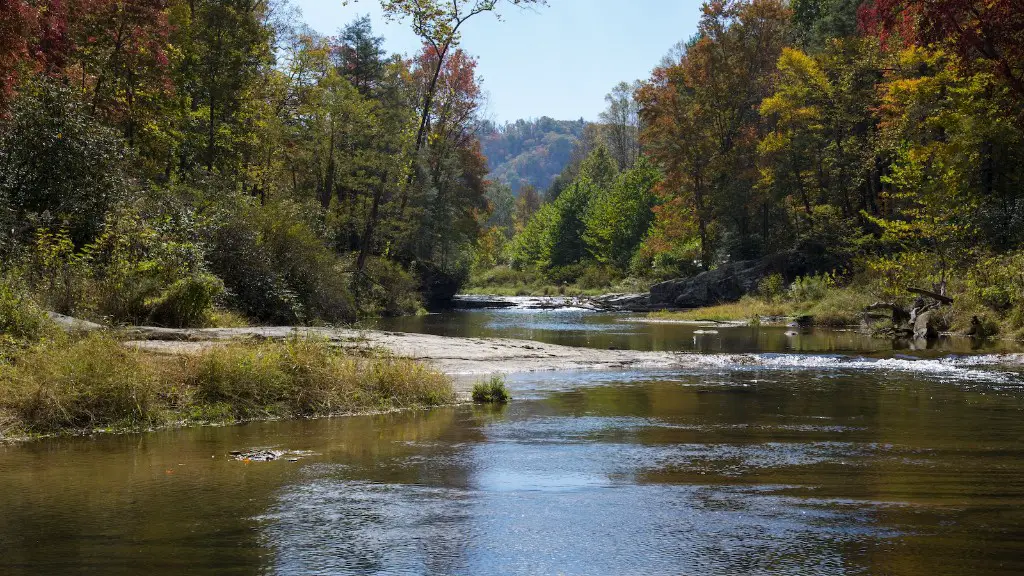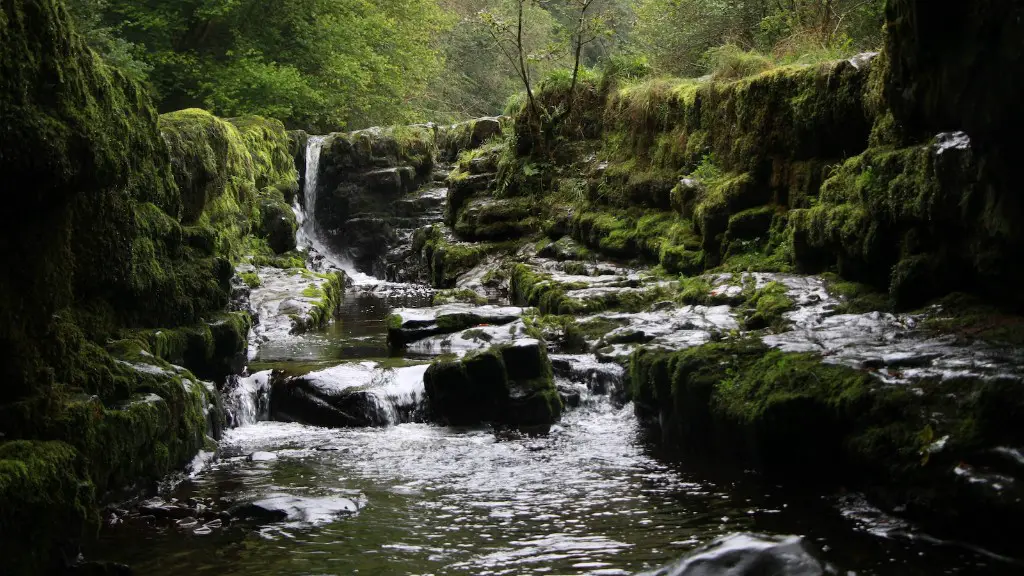Introduction: The Mississippi River is a river that runs through the middle of the United States and across the entire North American continent. It has played a key role in the history of the United States and has been a vital part of the development of the country from the very beginning. Many of the major decisions that have shaped the United States have revolved around the river, and it has had a major influence on the everyday lives of Americans throughout the country. This article will explore the changing history of the Mississippi River and how it has affected the development of the United States.
Background and Early History: The Mississippi River is the second longest river in the United States, and it is the fourth longest river in the world with a length of almost 2300 miles. It starts in Minnesota’s Lake Itasca and flows south through ten states before putting into the Gulf of Mexico. Native American tribes such as the Sioux, Osage, and Choctaw were the first people to live along the banks of the river, and the river has long been recognized as an important trade route and source of sustenance for the Native Americans. Early Europeans and American settlers also used the river for trade and commerce, with the French establishing a successful trading post on the river’s banks.
Development in the 19th Century: In the 19th century, the Mississippi River began to be used for transportation. The river’s easy accessibility made it the perfect place for steamboats to ferry goods and goods from one location to another. Larger towns started to spring up along the banks of the river, and cities such as Memphis, St. Louis, and New Orleans witnessed rapid development. At this time, the Mississippi was seen as a source of great hope and opportunity, as it allowed access to trade goods, goods transportation, and a connection to the outside world.
Civil War and Aftermath: The Civil War saw a great deal of fighting along the Mississippi River, with battles being fought on its banks and in its waters. After the war, the river played an important role in rebuilding the south, as it was one of the most efficient transportation systems available. The north was able to transport supplies to the south via the river, and the merchants of the south relied on the river to transport goods to markets around the world. The robust trade brought about by the river helped to sustain the south and rebuild it after the devastating effects of the war.
20th Century and Beyond: During the 20th century, the Mississippi River continued to be an important lifeline for the United States. It was used extensively during World War I, when the Allies and Germans both used the river for shipping supplies and troops. The river also served as a vital communication link between North and South during the Civil Rights Movement. Additionally, the river provided much of the power and energy needed to power many parts of the country. In recent years, the river has been at the center of environmental debates, with new efforts underway to protect the river and maintain its ecological health.
Conclusion: The Mississippi River is an integral part of American history and has played a major role in the development of the country. From its use by the Native Americans to its role in the Civil War and beyond, the river has been a vital part of American life and continues to play a major role in the country’s economy and culture. It is an enduring symbol of the nation and an example of the power and strength of our nation.
Effects of Expansion
As the United States expanded, so too did the use of the Mississippi River. With the opening up of the West, the river served as a key transportation route and allowed settlers to access new lands and resources further afield. As the expansion of America continued and as industry became more developed, the river continued to be used to transport goods, produce, and resources between different parts of the country.
At the same time, the river posed a number of challenges for industry. The power of the river was such that it caused flooding and destruction along its banks, and it was necessary to build levees and flood control to mitigate the damage caused by the river. Additionally, the river was prone to pollution, which had to be addressed with careful monitoring and regulation.
The expansion of the US also brought forth new opportunities for communities to develop along the banks of the Mississippi. With access to trade and transportation, these communities were able to flourish and become hubs for commerce and industry. Cities such as New Orleans, Memphis, and St. Louis grew substantially as a result of their connection to the river.
Furthermore, the development of the river played a key role in the development of American culture. The different groups of people who settled along the banks of the river contributed to the unique culture and cuisines of the region, and the river was used as a source of inspiration for some of the greatest works of American literature and music.
Environmental Impact
The Mississippi River has had a profound effect on the environment of the region and beyond. Over the years, the river has been used as a dumping ground for toxic waste from factories, and this has led to serious pollution in the river. The pollution has drastically reduced the water quality in the region, and it has had a devastating effect on the wildlife in the region.
The river is also susceptible to flooding, which has caused significant damage to the area in the past. The construction of dams and levees has managed to minimize the damage to some extent, but the river is still prone to flooding. In recent years, there have been several major floods, which have caused destruction and displacement of people living in the surrounding regions.
In light of these environmental issues, there has been a push to address the damage caused by the Mississippi River. This has created a new focus on conservation and sustainability, as well as a greater emphasis on the need to protect the river and the surrounding environment.
In addition, the government has taken steps to limit pollution in the river. Regulations have been put in place to regulate the dumping of waste, and there has been increased investment in technology and research to clean up the river and improve its water quality.
Economic Impact
The economic impact of the Mississippi River has been far-reaching. Throughout its history, the river has played an important role in the economy of the region and the United States as a whole. In the 19th century, the river allowed for the transportation of goods, produced a vital link between North and South and facilitated trade with the outside world. In the 20th century, the river continued to be used for transportation, though more for passenger travel than for trade. It served as an avenue for people to travel from place to place and as a source of employment.
The river has also had a major influence on industry in the region. Access to the river allowed industry to expand and grow in the area, and in some cases, the industries were even built along the banks of the river. This helped to create jobs in the area and spur economic development, and it continues to be an important source of employment even today.
In addition, the Mississippi River has had an impact on agriculture in the region. The river is a key source of irrigation and water supply, and it has allowed crops to be grown in some of the otherwise arid climates of the region. This has made the region more productive and allowed for an increased level of agricultural output.
Finally, the river has been vital in the tourism industry of the region. The river has allowed for a number of recreational activities to be enjoyed, from sailing to fishing and swimming, and the many attractions along the banks of the river have been a major draw for tourists from around the world.
Political Impact
The impact of the Mississippi River on politics can also not be understated. Throughout its history, the river has been used as a tool for both good and bad by politicians. In the early part of the 19th century, the river brought new economic opportunities to the region, and it helped to promote both growth and political stability.
At the same time, the river has also been used as a tool of control. Politicians have been known to manipulate the river’s flows in order to cause flooding in enemy territories, and in some cases, the river has even been used as a weapon of war. During the Civil War, for example, the Union army was able to win a number of key battles by taking advantage of the river’s natural features.
Furthermore, the river has played an important role in the racial tensions of the region. The river has long been seen as a divide between the North and the South, and it was an important factor in the civil rights movement. African Americans were able to cross the river and find freedom in the North, and they were also able to use the river as a tool of resistance and protest.
Finally, the river has also been an important source of political strength. In recent years, elected officials have taken up the cause of protecting the river and preserving it for generations to come. This has been a source of great pride for many in the region, and it has helped create a strong sense of identity for those who live along the banks of the river.





